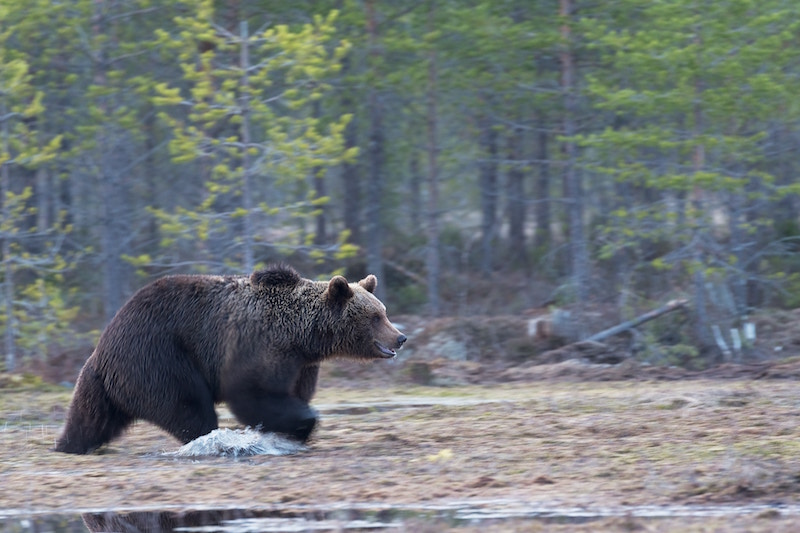There is almost no declension of the nouns left in German. Apart from the opposition singular/plural there are only the endings “-n” in dative plural and the “-(e)s” in genitive singular masculine/neuter.
Nevertheless, these nouns are called “strong nouns” (meaning they change a lot) due to their plural form (with umlaut) and the genitive -s.
The n-declension is easier! 😉
First rule: The n-declension includes only masculine nouns.
Second rule: The nouns of this group (called “weak declension”) add only “-(e)n” in all the cases both in singular and plural except for the nominative singular.
1. Endings of the n-declension
- If the noun ends in -e it adds only -n.
- If it ends in a consonant it adds -en,
- exceptions: Bauer/Nachbar add only -n, and Herr adds -n in singular and -en in plural.
| Kasus & Numerus | „Junge“ | „Mensch“ |
|---|---|---|
| Nominativ Singular | der Junge | der Mensch |
| Akkusativ Singular | den Jungen | den Menschen |
| Dativ Singular | dem Jungen | dem Menschen |
| Genitiv Singular | des Jungen | des Menschen |
| Nominativ Plural | die Jungen | die Menschen |
| Akkusativ Plural | die Jungen | die Menschen |
| Dativ Plural | den Jungen | den Menschen |
| Genitiv Plural | der Jungen | der Menschen |
2. Which nouns belong to this group
- All masculine beings (i.e. with the article der) that finish in -e: Junge, Kollege, Kunde, Neffe, Hirte, Jude, Bote, Affe, Hase, Löwe, Ochse, Drache including masculine nationalities with -e: Türke, Russe, Grieche, Ire, Finne, Tscheche, Pole, Slowake, Rumäne … (and also: Bayer, Ungar).
- Other masculine beings: Mensch, Nachbar, Held, Bauer, Christ, Prinz, Graf, Bär, Fink, Spatz.
- Professions and other designations for male beings that finish in: -ant, -and, -ent, -ist, -at, -ad, -af, -loge (and also: Architekt, Philosoph, Pilot, Katholik, Poet, Chirurg, Zar) as well as some objects with the same endings: Automat, Diamant, Telegraf, Planet, Komet, Satellit, Asteroid/Android.
- Notice that the Latin ending –or does not belong to the n-declension!
Examples
- Wer ist dieser Junge? — Ich kenne den Jungen nicht.
- Ich sehe den Rezeptzionisten am Telefon.
- Da ist ein Bär! Hast du den Bären gesehen?
- Wo finde ich einen Bankautomaten?
- Ich suche einen Fotografen.
- Sie spricht mit keinem Menschen.
- Helga bewundert einen großen Elefanten.
Exceptions
There are 7 masculine nouns that belong to the n-declension but they add the genitive -s to their normal -n ending: Name, Buchstabe, Friede, Glaube, Wille, Gedanke, Funke. There is only one neutral noun belonging to the n-declension: das Herz (von ganzem Herzen). It also has the genitive-s.
- Akkusativ: Wie schreibt man den Namen?
- Genitiv: Ich mag die Form dieses Buchstabens.
- Genitiv: Dies ist ein Symbol des Friedens.
- Genitiv: Ich denke, das ist eine Frage des Glaubens.
- Genitiv: Die Anatomie des Herzens.
Download “Exercise: The “n Declension” in German”
Exercises-n-Declension-German.docx – Downloaded 5023 times – 106.72 KB

